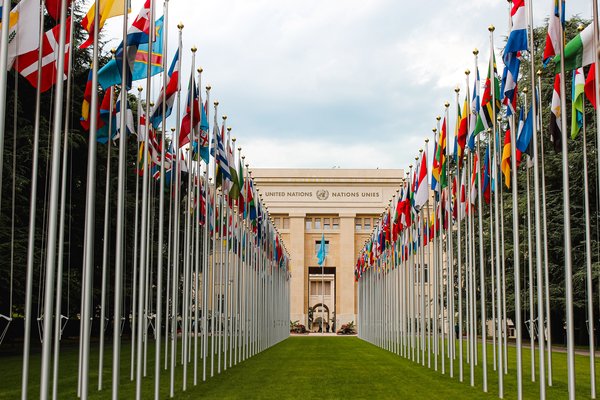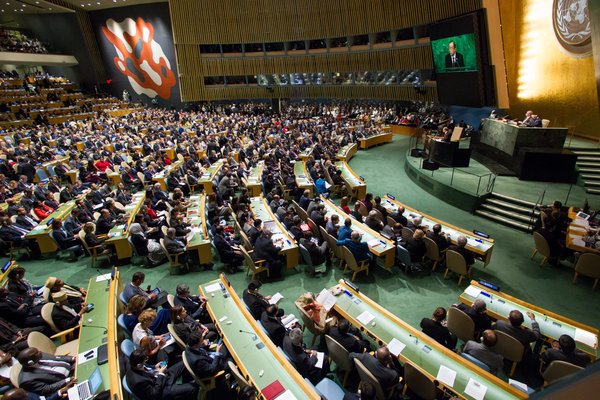
Opening of UN Summit for Refugees and Migrants. UN Photo/Eskinder Debebe. CC BY-NC-ND 2.0
This policy brief was originally published via the United Nations University Centre for Policy Research (UNU-CPR). Learn more here.
The Global Compact for Migration (GCM) is an important tool that can help to facilitate cooperation between Member States in their responses to migration. It offers concrete commitments that, if fully adhered to, would ensure that policies towards migration centre human rights and respond appropriately to the needs of people. In adopting the Progress Declaration at the International Migration Review Forum (IMRF) in 2022, Member States reaffirmed their commitment to the principles underpinning the GCM, but also acknowledged that the implementation process had been slower than hoped, and uneven in many areas.
Six months after the IMRF, MIDEQ and UNU-CPR organised a policy roundtable in Geneva to reflect on progress related to the implementation of the GCM and discuss challenges that lay ahead to turn the Compact’s promises into practice. The roundtable focused on four cross cutting themes :
- The need to ensure effective respect, protection and fulfilment of the human rights of all migrants, regardless of their migration status, across all stages of the migration cycle;
- The commitment to eliminate all forms of discrimination, including racism, xenophobia and intolerance against migrants and their families;
- The importance a whole-of-government approach to ensure horizontal and vertical policy coherence across all sectors and levels of government; and
- The need for a whole-of-society approach to address migration in all its dimensions.
This policy brief summarises the key themes and recommendations that emerged from the discussion.



